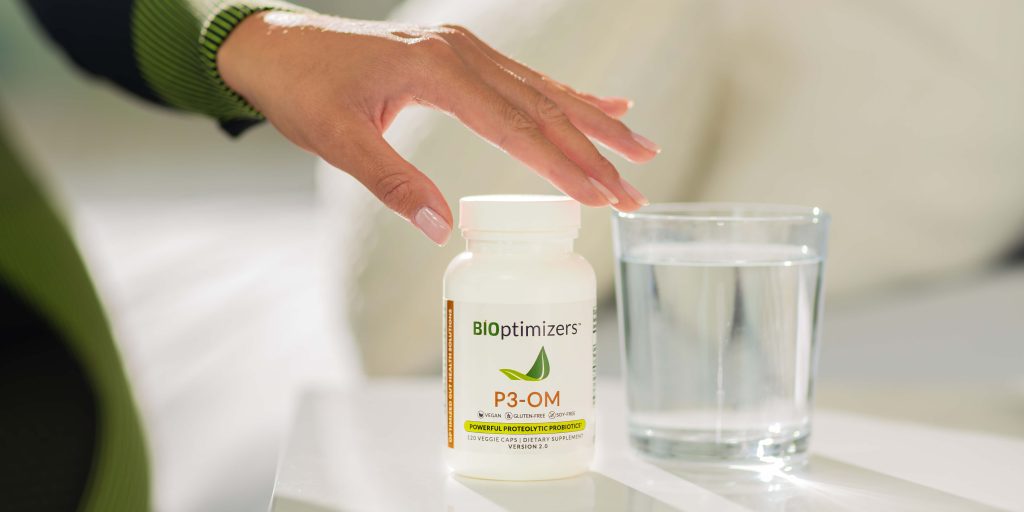Best Magnesium for Bodybuilding

The importance of magnesium is often overlooked among bodybuilders and the general public seeking to gain muscles. This essential mineral plays a crucial role in muscle function and energy metabolism, yet intense workouts can quickly deplete our body's magnesium stores.

This article delves into the science behind magnesium’s role in enhancing performance and aiding recovery. We’ll also provide practical advice on when and how to supplement with magnesium to support your bodybuilding goals and help you reach your full potential.
Roles of Magnesium in Muscle Function, Strength, Growth, and Recovery
Magnesium is one of the secret weapons for building muscles and staying fit.

Testosterone and Other Anabolic Hormones
Magnesium positively affects testosterone and other anabolic hormones. Testosterone does two important things in muscles: it helps build muscles (anabolic effect) and stops them from breaking down (anti-catabolic effect). Together, these actions make muscles grow bigger.
A four-week study explored the effects of magnesium supplements on testosterone levels in athletes and sedentary individuals. Participants took 4.5mg/lb (10mg/kg) of magnesium. Supplementation raised testosterone in sedentary and athletic people, but athletes experienced the highest increases.
Magnesium supplementation raised sedentary individuals’ free testosterone levels by 7 pg/mL, while raising athletes’ levels by 8 pg/mL.
In addition to its effects on testosterone, magnesium also seems to interact with insulin-like growth factor-1 (IGF-1), another anabolic hormone crucial in muscle growth and development.
As a messenger, IGF-1 helps regulate crucial muscle processes, including repair and growth. It triggers muscle repair and growth by stimulating cell division and protein synthesis. IGF-1 enhances nutrient uptake in muscle cells and boosts protein synthesis. This leads to larger muscle fibers, improved muscle function, and overall muscle growth.
What this means for you, is that taking magnesium supplements can support healthy testosterone levels while also teaming up with insulin-like growth factor-1 (IGF-1). Overall this helps your muscles:
- Grow
- Repair
- Get stronger
And all of these are a win-win for bodybuilders looking to bulk up.
Sleep Quality
Sleep is crucial for muscle recovery and growth, and magnesium supports quality sleep.
A study of 13 healthy young adults explored the effects of sleep on muscle protein synthesis. To allow full recovery, participants underwent one night of sleep deprivation and one night of normal sleep with hormonal profile testing four weeks apart.
Sleep deprivation decreased muscle protein synthesis by 18% and plasma testosterone by 24%, which could lead to muscle breakdown. Even if you don’t have serious sleep problems, this study shows how important optimal sleep is for muscle growth and recovery.
A study of 10,125 young adults examined the effects of sleep quality on muscle strength. Those who slept seven hours or more had higher muscle strength, while those sleeping six hours or less had less muscle strength.
Magnesium can help support better sleep. A controlled study of 46 participants explored the effects of magnesium supplementation on sleep. Participants took 500mg of magnesium or a placebo daily for eight weeks.
Those taking magnesium:
- Fell asleep 20 minutes faster
- Slept longer
- Experienced fewer sleep disruptions
- Increased their melatonin levels
- Woke up earlier and more refreshed
Because magnesium supports better sleep, it’s a valuable ally for bodybuilders striving for optimal muscle development and repair.
Learn more about the role of magnesium in sleep with this informative article.
Muscle Contraction and Strength

Muscle contraction is a key component of any workout, allowing you to apply force and stress your muscles. As you exercise, especially with hypertrophy programs, your muscles contract and experience tiny tears, prompting your body to repair and create new proteins for muscle growth.
One mineral that plays a crucial role in this process is magnesium. By regulating calcium ions, magnesium helps your muscles contract and relax. Besides your bones, your muscles are the largest magnesium stores in your body, making up 27% of all magnesium in your body.
Not having enough magnesium can weaken your muscles, cause cramps and spasms, and negatively impact your physical performance during exercise. These could translate to less strength and mass gains.
Besides its role in muscle contraction, magnesium also helps convert food into usable energy for the body. Enzymes involved in energy metabolism, such as adenosine triphosphate (ATP) synthase, require magnesium to function properly. ATP synthase produces ATP, the body’s main energy currency, which helps fuel your workouts.
A controlled study of 13 healthy athletes explored the effects of magnesium supplementation on resistance exercise. Participants took 300 mg of elemental magnesium while performing intense exercise and bench pressing 80% of their maximum lift until exhaustion.
The results were impressive: those taking magnesium significantly increased their bench press performance by 18%. This suggests that magnesium supplementation may be beneficial for increasing strength gains and enhancing overall exercise performance.
Magnesium’s vital role in muscle contraction and its contribution to energy metabolism underscores its significance for bodybuilders. Ensuring an adequate magnesium intake not only helps support muscle function but can also help:
- Prevent weakness
- Cramps
- Spasms
It has the potential to boost strength gains and enhance exercise performance, making it a valuable element in any bodybuilder’s regimen.
Inflammation Regulation
When you workout, you damage your muscles, and your body works to grow them back even stronger and larger. Inflammation is a natural part of muscle repair and growth and, under normal circumstances, is a tightly controlled process.
However, it is essential to note that excessive or prolonged inflammation can be harmful and may delay your recovery process. To help muscles recover and grow, your body needs to be able to regulate and control inflammation in the muscles. Magnesium can play a key role in supporting inflammation regulation.
A meta-analysis of 17 studies examined the effects of magnesium supplementation on inflammatory markers, including in healthy adults. The majority of participants took 250 mg of magnesium daily. Those taking magnesium significantly mitigated their C-reactive protein and nitric oxide, which are inflammatory markers.
A controlled study of 22 young adults investigated the effects of magnesium on muscle soreness and recovery. Participants took 350 mg of magnesium for ten days. They did strenuous bench press exercises to induce muscle fatigue and soreness and then performed additional exercise sessions 48 hours later.
Participants rated their soreness and perceived recovery. Magnesium supplementation significantly reduced reported muscle soreness and improved perceived recovery.
With the ability to regulate and control inflammation, magnesium plays a crucial role in supporting muscle recovery and growth. As a bodybuilder, this means faster recovery and more efficient muscle growth.
Cardiovascular Capacity and Endurance

Bodybuilding workouts can be grueling and demanding of your cardiovascular system, especially the more advanced you are. The longer and more intense your workouts, the more you’ll deplete magnesium.
Therefore, maintaining healthy levels of magnesium in your body is one of the keys to supporting your ability to go through these workouts while maintaining your performance.
Magnesium is vital for the proper functioning of the cardiovascular system during exercise. It helps:
- Maintain the stability of cell membranes
- Regulate the contraction and relaxation of the heart muscle
When exercising, your heart has to work harder and typically beats faster to get adequate oxygen and blood to your muscles. Magnesium can help support your heart while it’s hard at work.
Magnesium also plays a crucial role in endurance. While more research is needed, researchers believe active people may need more magnesium for peak performance.
A literature review of studies focused on magnesium and physical performance. Overall, studies show that magnesium may improve:
- Heart rate: A reduction in heart rate suggests a beneficial effect on cardiovascular function.
- Ventilation: refers to the amount of air breathed in and out of the lungs per minute and suggests improved respiratory function.
- Oxygen uptake: a measure of how much oxygen is being used by the body during exercise, suggesting that magnesium may help to improve how efficiently you use oxygen.
- Carbon dioxide production: how much carbon dioxide is being produced by the body during exercise. This suggests that magnesium may help improve energy production efficiency in the body.
Researchers discovered magnesium can enhance heart health, lung function, and energy levels. This may lead to improved physical performance. Additionally, they emphasize the importance of conducting randomized controlled trials to learn more about magnesium’s possible benefits.
With a wealth of possible benefits of magnesium supplementation, this could translate to even better physical performance and muscle growth for bodybuilding.
How Much Magnesium for Bodybuilding
We’ve discussed different ways magnesium can support anabolism or muscle building. But how much should you take?
Studies show that a recommended starting point for magnesium intake is about 4.5 milligrams per pound (equivalent to 10 milligrams per kilogram) of body weight for athletes. This means that if you’re 180 lbs, you need around 810 mg of magnesium daily, especially when training. That’s three to four capsules of Magnesium Breakthrough.
The doses noted above successfully increased the testosterone levels of taekwondo athletes compared to sedentary individuals, as previously discussed.
A seven-week controlled study investigated the effects of magnesium supplementation on strength training in untrained subjects. Participants maintained a magnesium intake of 3.6 mg/lb (8 mg/kg) daily while completing a strength training lower body routine three times weekly. The group taking magnesium supplements increased their strength compared to the control group.
This study sheds light on where you may want to begin if you are just beginning to train. At 3.6 mg/lb, if you weigh around 180 lb, you would need to take around 650 mg of magnesium or three capsules of Magnesium Breakthrough.
You may have noticed that these amounts are higher than the Recommended Daily Allowance (RDA) values of 400-420 mg for men and 310-320 mg for women. However, these values are the bare minimum and don’t account for the demands of an athlete in training.
Magnesium doses over RDA are pretty safe and often optimal for many people, especially hard-training bodybuilders.
Your magnesium status can also influence how much magnesium you need. It’s critical to ensure that you are not deficient. Learn more about the best ways to test your magnesium status in this blog post.
When to Take Magnesium for Bodybuilding

So, what’s the best time to take magnesium to support muscle growth? Research suggests that about three hours before your workout is most beneficial.
A study of 13 athletes examined how magnesium affects exercise and blood vessels. Participants took 300mg of magnesium four weeks daily (chronic supplementation) or three hours before intense exercise (acute supplementation) and weight lifting for two days.
People who took magnesium right before exercising could lift 17% more weight, and this improvement continued on the second day. In contrast, those who regularly took magnesium didn’t increase their strength. Instead, their strength decreased by 32% on the second day.
The acute group had lower blood pressure and better blood flow on both days than the chronic group. Therefore, taking magnesium before working out could help make you stronger and further support your bodybuilding goals by having healthier blood flow.
Now, are there other benefits beyond strength gains from taking magnesium every day? Absolutely. It’s why you should take magnesium daily to support your sleep, stress response, mental health, and more. Whereas, to support strength training, take a dose a few hours before your training sessions.
Best Magnesium for Bodybuilders
You don’t have to stick to just one type of magnesium to help with your bodybuilding goals. In fact, multiple forms of magnesium have been used effectively in studies that looked at improving exercise performance and muscle gain.
Some forms highlighted in the studies we’ve covered in this article include:
- Magnesium citrate
- Magnesium oxide
- Magnesium sulfate
While these are used in studies to increase testosterone and help support muscle growth, your body needs multiple forms of magnesium for optimal health.
Magnesium Breakthrough contains seven forms of magnesium to give your body the support it needs. Not only for muscle growth but also for high-quality sleep and virtually every function in your body.
Conclusion
If you want to optimize your bodybuilding efforts, do not overlook the vital role of magnesium. Get started by:
- Knowing your magnesium levels through proper testing
- Getting seven to eight hours of quality sleep every night
- Taking magnesium three hours before workouts
Choosing a high-quality magnesium supplement like Magnesium Breakthrough
- Vingren JL, Kraemer WJ, Ratamess NA, Anderson JM, Volek JS, Maresh CM. Testosterone physiology in resistance exercise and training: The up-stream regulatory elements. Sports Med. 2010;40(12):1037-1053. doi:10.2165/11536910-000000000-00000
- Cinar V, Polat Y, Baltaci AK, Mogulkoc R. Effects of magnesium supplementation on testosterone levels of athletes and sedentary subjects at rest and after exhaustion. Biol Trace Elem Res. 2011;140(1):18-23. doi:10.1007/s12011-010-8676-3
- Maggio M, Ceda GP, Lauretani F, et al. Magnesium and anabolic hormones in older men: Magnesium and anabolic status in older men. Int J Androl. 2011;34(6pt2):e594-e600. doi:10.1111/j.1365-2605.2011.01193.x
- Fink J, Schoenfeld BJ, Nakazato K. The role of hormones in muscle hypertrophy. Phys Sportsmed. 2018;46(1):129-134. doi:10.1080/00913847.2018.1406778
- Velloso CP. Regulation of muscle mass by growth hormone and IGF-I: Muscle mass, GH and IGF-I. Br J Pharmacol. 2008;154(3):557-568. doi:10.1038/bjp.2008.153
- Yoshida T, Delafontaine P. Mechanisms of IGF-1-mediated regulation of skeletal muscle hypertrophy and atrophy. Cells. 2020;9(9):1970. doi:10.3390/cells9091970
- Lamon S, Morabito A, Arentson-Lantz E, et al. The effect of acute sleep deprivation on skeletal muscle protein synthesis and the hormonal environment. Physiol Rep. 2021;9(1). doi:10.14814/phy2.14660
- Chen Y, Cui Y, Chen S, Wu Z. Relationship between sleep and muscle strength among Chinese university students: a cross-sectional study. Journal of Musculoskeletal & Neuronal Interactions. 2017;17(4):327.
- Abbasi B, Kimiagar M, Sadeghniiat K, Shirazi MM, Hedayati M, Rashidkhani B. The effect of magnesium supplementation on primary insomnia in elderly: A double-blind placebo-controlled clinical trial. Journal of Research in Medical Sciences : The Official Journal of Isfahan University of Medical Sciences. 2012;17(12):1161.
- Jahnen-Dechent W, Ketteler M. Magnesium basics. Clin Kidney J. 2012;5(Suppl 1):i3-i14. doi:10.1093/ndtplus/sfr163
- Zhang Y, Xun P, Wang R, Mao L, He K. Can magnesium enhance exercise performance? Nutrients. 2017;9(9):946. doi:10.3390/nu9090946
- Kass LS, Poeira F. The effect of acute vs chronic magnesium supplementation on exercise and recovery on resistance exercise, blood pressure and total peripheral resistance on normotensive adults. J Int Soc Sports Nutr. 2015;12(1). doi:10.1186/s12970-015-0081-z
- Peake JM, Neubauer O, Della Gatta PA, Nosaka K. Muscle damage and inflammation during recovery from exercise. J Appl Physiol. 2017;122(3):559-570. doi:10.1152/japplphysiol.00971.2016
- Reno AM, Green M, Killen LG, O’Neal EK, Pritchett K, Hanson Z. Effects of magnesium supplementation on Muscle Soreness and performance. J Strength Cond Res. 2022;36(8):2198-2203. doi:10.1519/jsc.0000000000003827
- Laires MJ, Monteiro C. Exercise and Magnesium. In: New Perspectives in Magnesium Research. Springer London; 2007:173-185.
- Maggio M, De Vita F, Lauretani F, et al. The interplay between magnesium and Testosterone in modulating physical function in men. Int J Endocrinol. 2014;2014:1-9. doi:10.1155/2014/525249
- Brilla LR, Haley TF. Effect of magnesium supplementation on strength training in humans. J Am Coll Nutr. 1992;11(3):326-329. doi:10.1080/07315724.1992.10718233
- Veronese N, Pizzol D, Smith L, Dominguez LJ, Barbagallo M. Effect of magnesium supplementation on inflammatory parameters: A meta-analysis of randomized controlled trials. Nutrients. 2022;14(3):679. doi:10.3390/nu14030679






